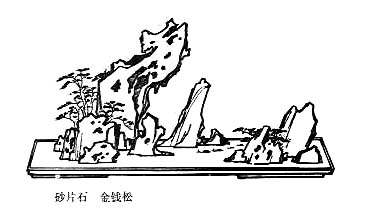詩
經
Shi Jing 
 – The Book of Odes
– The Book of Odes
The oldest collection of Chinese poetry, more than three hundred songs, odes and hymns. Tr. Legge (en) and Granet (fr, incomplete).
Shijing II. 1. (161)
With pleased sounds the deer call to one another,
Eating the celery of the fields.
I have here admirable guests ;
The lutes are struck, and the organ is blown [for them] ; –
The organ is blown till its tongues are all moving.
The baskets of offerings [also] are presented to them.
The men love me,
And will show me the perfect path.
With pleased sounds the deer call to one another,
Eating the southernwood of the fields.
I have here admirable guests ;
Whose virtuous fame is grandly brilliant.
They show the people not to be mean ;
The officers have in them a pattern and model.
I have good wine,
Which my admirable guests drink, enjoying themselves.
With pleased sounds the deer call to one another,
Eating the salsola of the fields.
I have here admirable guests ;
For whom are struck the lutes, large and small.
The lutes, large and small, are struck,
And our harmonious joy is long-continued.
I have good wine,
To feast and make glad the hearts of my admirable guests.
Legge 161

The Book of Odes – Shi Jing II. 1. (161) – Chinese on/off – Français/English
Alias Shijing, Shi Jing, Book of Odes, Book of Songs, Classic of Odes, Classic of
Poetry, Livre des Odes, Canon des Poèmes.
The Book of Odes, The Analects, Great Learning, Doctrine of the Mean, Three-characters book, The Book of Changes, The Way and its Power, 300 Tang Poems, The Art of War, Thirty-Six Strategies
Welcome, help, notes, introduction, table.
Index – Contact – Top
